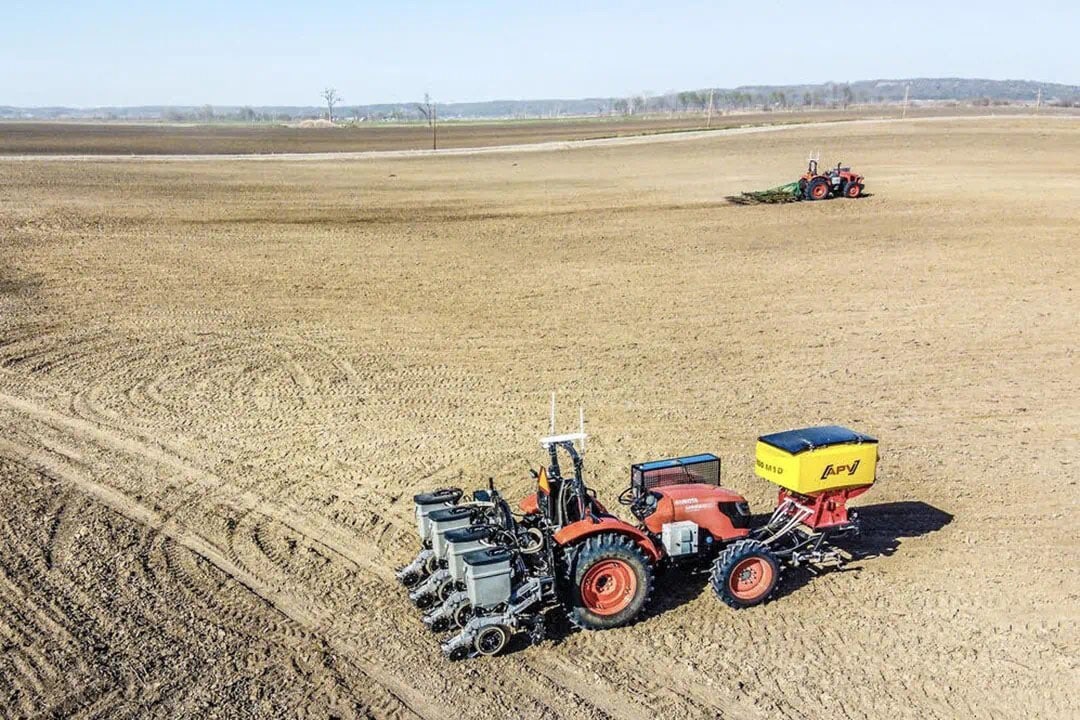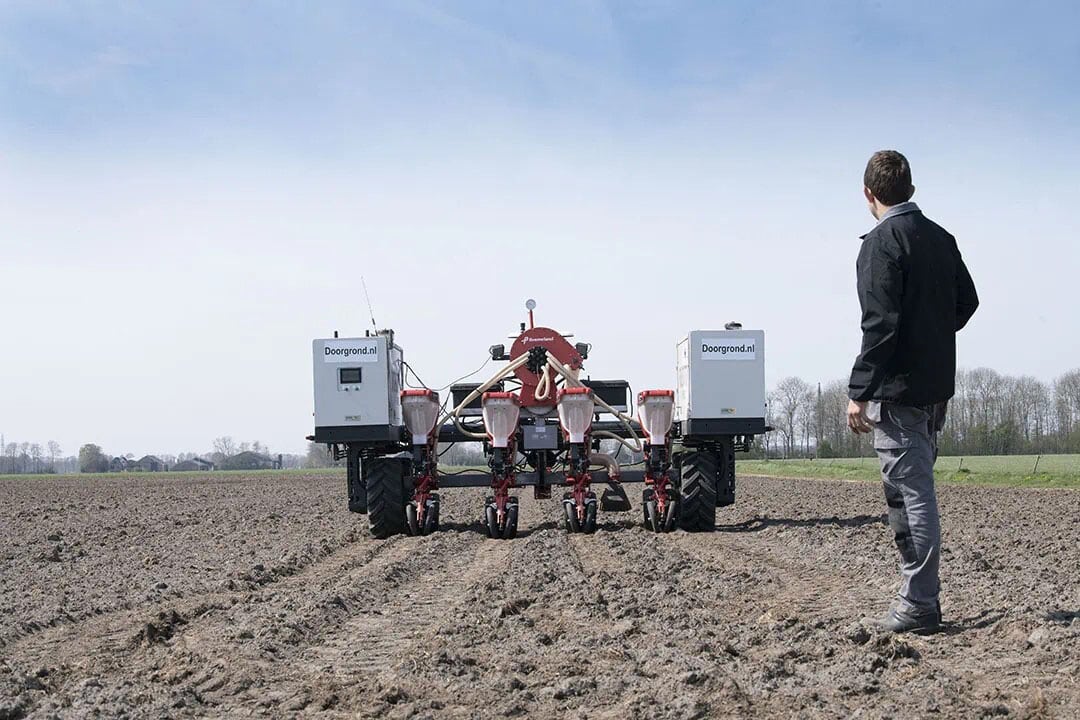How a new breed of contractors accelerates the adoption of autonomy in agriculture

Contractors can help speed up the adoption of autonomy in agriculture, such as field robots and other autonomous vehicles. Their position at the forefront of adoption however requires a different mindset.
In many countries across the world and across different sectors, contractors have always been at the forefront of the adoption of new concepts and technology. Maybe lesser in broadacre and large-scale cash crop farming but there’s plenty of harvest crews with high-tech machinery moving from south to north in certain regions.
Because of the hours spent, the acreage covered and (hopefully) the money earned, contractors are usually more open to innovative technology that is unaffordable or simply not interesting for farmers, such as autonomy in agriculture. The uptake of field robots for outdoor crop production can put some for a challenge, while others seize the opportunity.
From contracting to manufacturing
There are hundreds of examples of ag contractors who started manufacturing their own machinery because they couldn’t find the right equipment on the market. It resulted in remarkable and some of the best innovations.
With respect to autonomy in agriculture, GUSS certainly is a such an example. Their autonomous sprayers were developed for the family contract spraying business that started in 1982. About a dozen of autonomous sprayers are operated by the family’s contracting business nowadays. Their latest addition, GUSS Herbicide, recently won a CES Innovation Award.
Early adopter of autonomy in agriculture
By putting autonomous sprayers into operation, the company took a big risk by investing as an early adopter of autonomy in agriculture. They bridged a (big) gap by making innovative, input and labour-saving technology available to farmers at an affordable price per acre/hectare/farm.
Another North American example of this new type of contracting business is Sabanto Ag. The start-up offers autonomous farming operations as a service. You can hire them to do planting, tine weeding, rotary hoeing, cultivating, vertical tillage and more on your fields. Their farming-as-a-service approach has meanwhile attracted investors including Trimble and Yara.
Text continues below image

Adding advisory as a service
While the examples above focus mainly on selling ‘their’ product and services, some of their European counterparts are adding advisory to their offerings. Advisory towards farmers, but also towards manufacturers. AllAgBots Nordic from Denmark is such an example. The company was founded in 2021 with ‘the goal of being the link between farmers and manufacturers’. In hindsight, they actually might even fit in better as a distributor rather than a contractor.
UK Autonomous Agri Solutions is practicing a similar business model and aims ‘to propel the UK into the fourth agricultural revolution’. Its founders, two young agricultural engineering graduates who grew up on farms, took the opportunity to introduce field robots to their fellow British farmers.
A similar approach is being followed by Dutch start-up company Doorgrond. Three young men who operate as distributors, accelerators and contractors for precision ag solutions and autonomous and robotic technologies. Such as autonomous planting with the AgroIntelli Robotti field robot. They also help develop algorithms for targeting specific weeds in crops such as volunteer potatoes in sugar beets with the Ecorobotix ARA.
Text continues below image

Focus on autonomy in agriculture and robotics
You might consider these young companies as ‘ordinary’ contractors and distributors but they are different. They have a different mindset and (solely) focus on autonomy in agriculture and robotics. This demands a different approach and business model with a focus on advisory, consultancy and customer expectations management.
Their eagerness, passion and perseverance to help making the introduction of field robots and other autonomous solutions a success, is what they certainly have in common. And not at the expense of farmers.
If you know of other examples, then please share these with us!
Join 17,000+ subscribers
Subscribe to our newsletter to stay updated about all the need-to-know content in the agricultural sector, two times a week.



